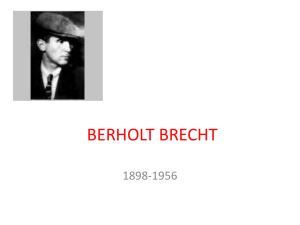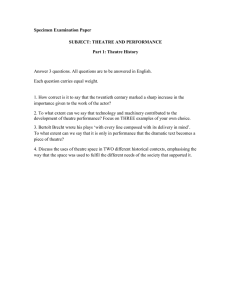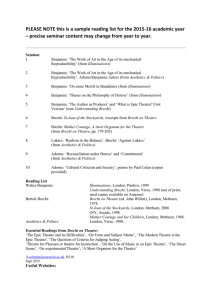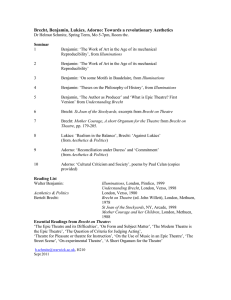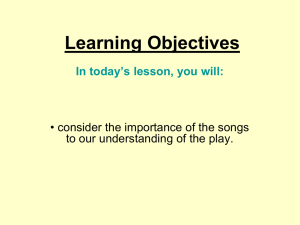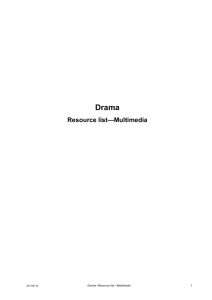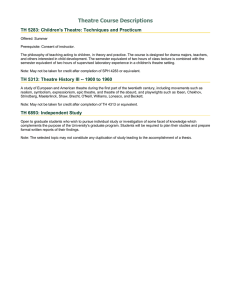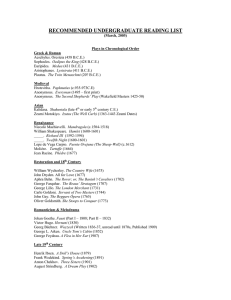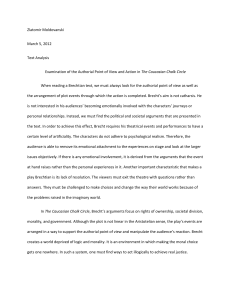GE 212 - Worksheet Week 2 Group 1:
advertisement
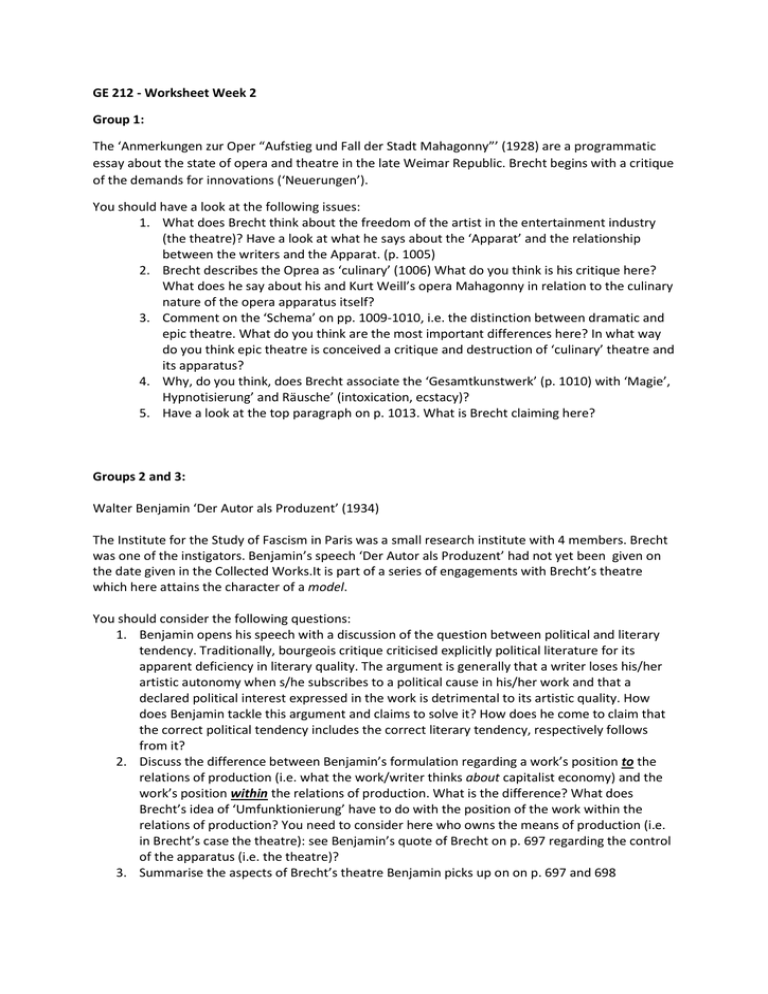
GE 212 - Worksheet Week 2 Group 1: The ‘Anmerkungen zur Oper “Aufstieg und Fall der Stadt Mahagonny”’ (1928) are a programmatic essay about the state of opera and theatre in the late Weimar Republic. Brecht begins with a critique of the demands for innovations (‘Neuerungen’). You should have a look at the following issues: 1. What does Brecht think about the freedom of the artist in the entertainment industry (the theatre)? Have a look at what he says about the ‘Apparat’ and the relationship between the writers and the Apparat. (p. 1005) 2. Brecht describes the Oprea as ‘culinary’ (1006) What do you think is his critique here? What does he say about his and Kurt Weill’s opera Mahagonny in relation to the culinary nature of the opera apparatus itself? 3. Comment on the ‘Schema’ on pp. 1009-1010, i.e. the distinction between dramatic and epic theatre. What do you think are the most important differences here? In what way do you think epic theatre is conceived a critique and destruction of ‘culinary’ theatre and its apparatus? 4. Why, do you think, does Brecht associate the ‘Gesamtkunstwerk’ (p. 1010) with ‘Magie’, Hypnotisierung’ and Räusche’ (intoxication, ecstacy)? 5. Have a look at the top paragraph on p. 1013. What is Brecht claiming here? Groups 2 and 3: Walter Benjamin ‘Der Autor als Produzent’ (1934) The Institute for the Study of Fascism in Paris was a small research institute with 4 members. Brecht was one of the instigators. Benjamin’s speech ‘Der Autor als Produzent’ had not yet been given on the date given in the Collected Works.It is part of a series of engagements with Brecht’s theatre which here attains the character of a model. You should consider the following questions: 1. Benjamin opens his speech with a discussion of the question between political and literary tendency. Traditionally, bourgeois critique criticised explicitly political literature for its apparent deficiency in literary quality. The argument is generally that a writer loses his/her artistic autonomy when s/he subscribes to a political cause in his/her work and that a declared political interest expressed in the work is detrimental to its artistic quality. How does Benjamin tackle this argument and claims to solve it? How does he come to claim that the correct political tendency includes the correct literary tendency, respectively follows from it? 2. Discuss the difference between Benjamin’s formulation regarding a work’s position to the relations of production (i.e. what the work/writer thinks about capitalist economy) and the work’s position within the relations of production. What is the difference? What does Brecht’s idea of ‘Umfunktionierung’ have to do with the position of the work within the relations of production? You need to consider here who owns the means of production (i.e. in Brecht’s case the theatre): see Benjamin’s quote of Brecht on p. 697 regarding the control of the apparatus (i.e. the theatre)? 3. Summarise the aspects of Brecht’s theatre Benjamin picks up on on p. 697 and 698 4. What does this have to do with the ‘Ort des Intellektuellen im Klassenkampf’ (p. 691) – you need to consider that the intellectual is a member of the bourgeois class. This is an argument about taking sides in the class struggle which Benjamin picks up on at the end of the piece. If the writer in question is him/herself a bourgeois, in what way, does Benjamin suggest can the bourgeois writer support the class struggle?
